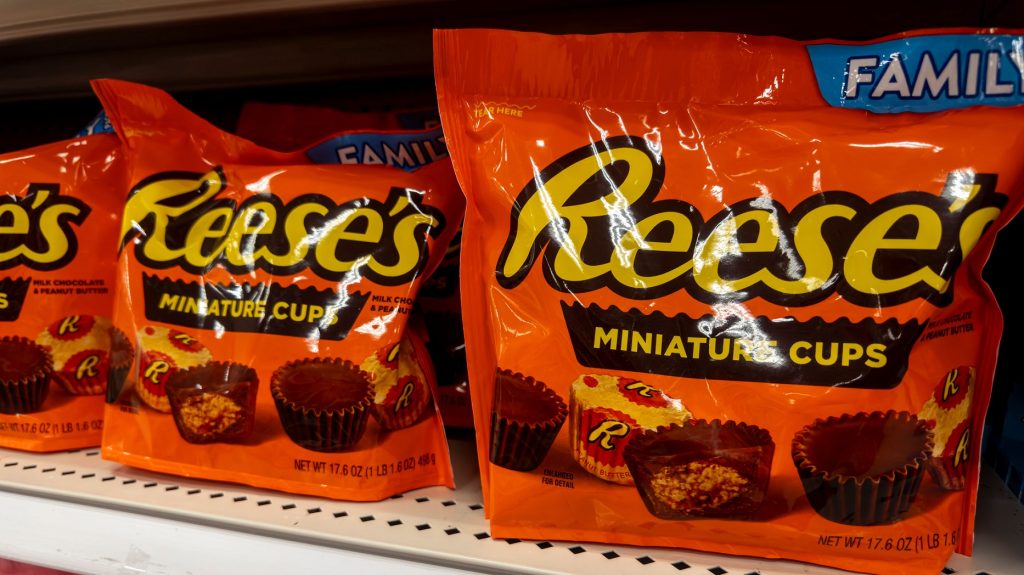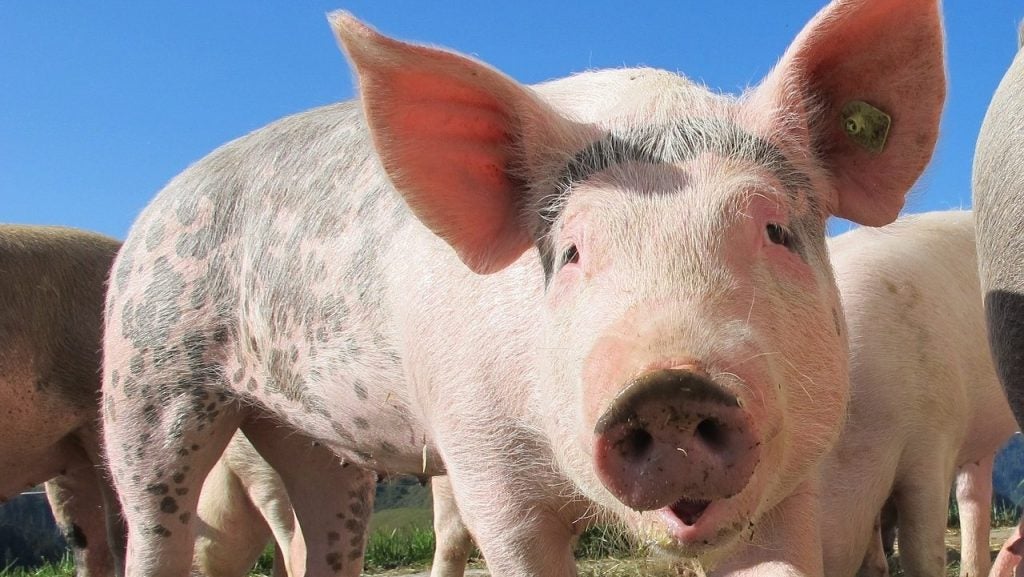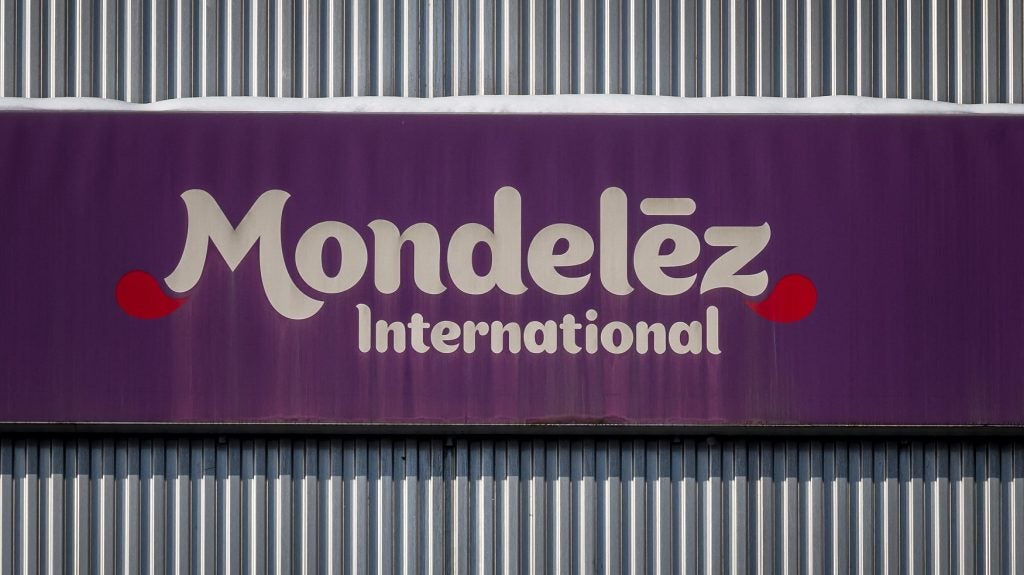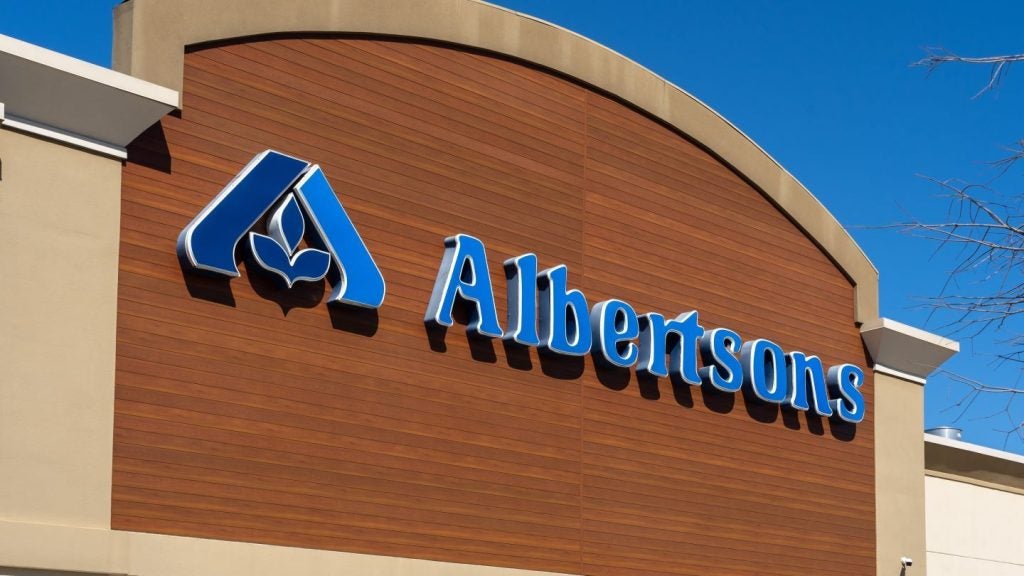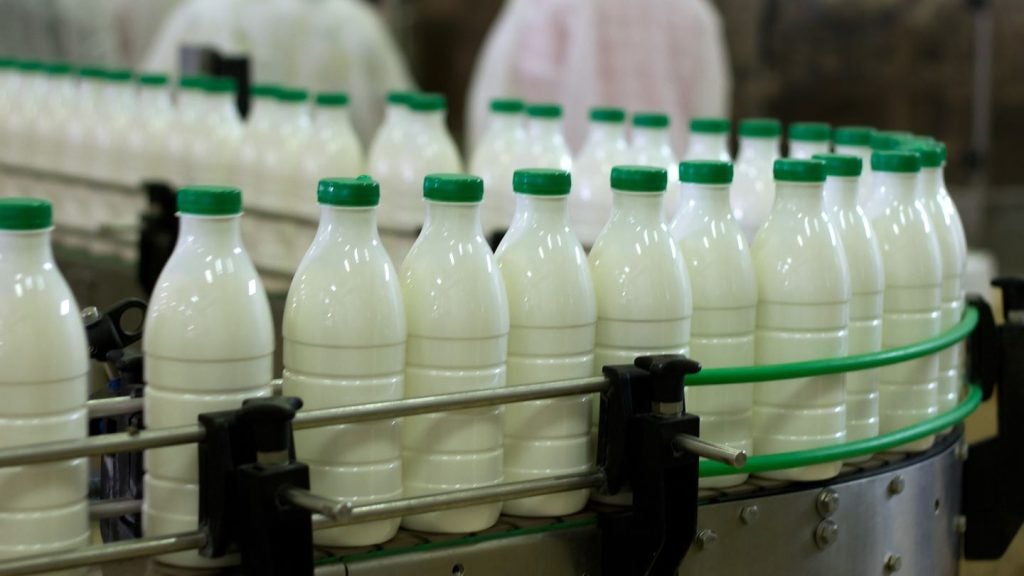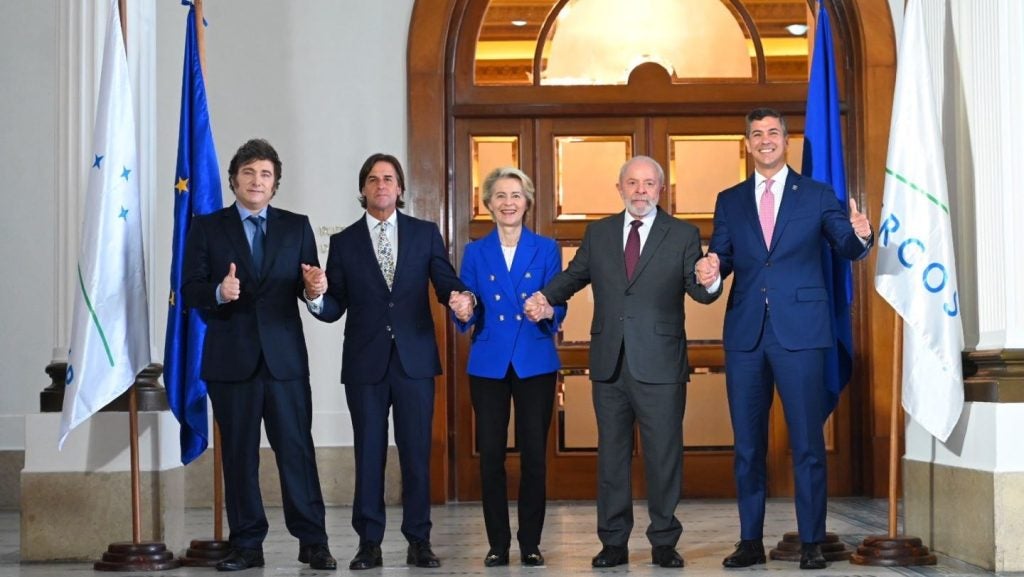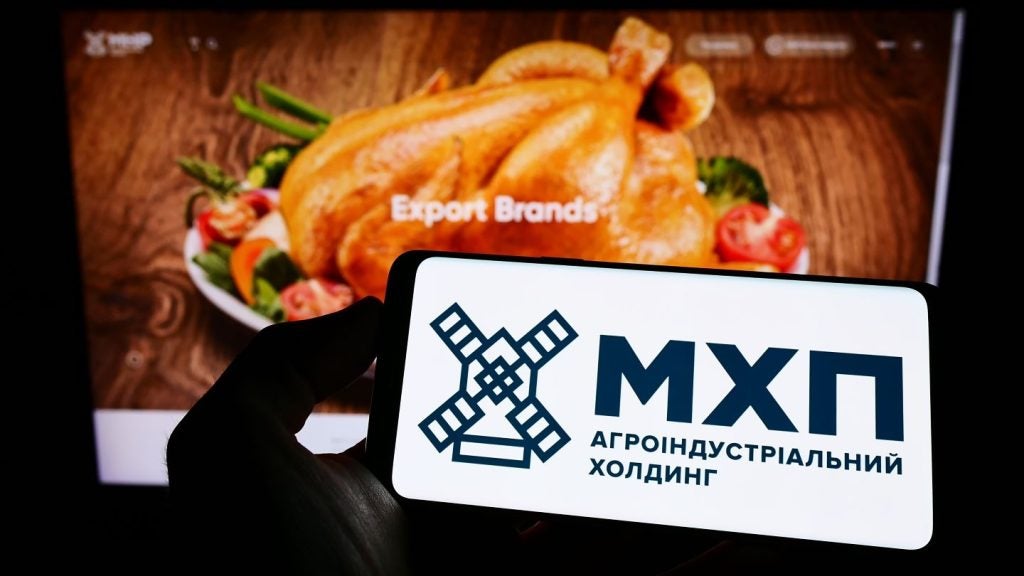There was, as one veteran Wall Street analyst put it, “a huge sense of déjà vu” yesterday (9 December) after Bloomberg reported Mondelez International had made a fresh move for rival confectioner Hershey.
A little more than eight years after Hershey rebuffed a takeover bid from Mondelez, Bloomberg said the Cadbury owner had made what the news outlet called a “preliminary approach” to buy Hershey.
Citing unnamed sources whom Bloomberg described as “familiar with the matter”, the publication said Mondelez had approached the Reese’s maker over a “possible combination”.
Contacted by Just Food, Mondelez and Hershey declined to comment on what they both called “market rumours and speculation”.
That didn’t stop the market reacting, with Hershey’s share price jumping more than 15% (though some of those gains had receded by the end of the day and the Reese’s maker’s stock is down almost 2% again today at the time of writing) – and Mondelez’s shares finishing trading in New York yesterday 3% lower.
And Bloomberg’s report – and the prospect of another mega-deal in packaged food just months after Mars’ move for Kellanova – has sparked a range of views on Wall Street.
Why could Mondelez still be interested in Hershey?
Although it’s important to remember Mondelez has declined to comment on Bloomberg’s report (and, so far, it is just one report from one media outlet), taken at face value, yesterday’s news suggests this might not be a case of once bitten, twice shy.
In mid-2016, Hershey’s board “unanimously rejected” a takeover approach from Mondelez worth $107 a share, or $22.83bn. At the time, Hershey described the offer as a “mix of cash and stock consideration”, as well as “other non-monetary considerations”.
Mondelez was reportedly ready to return with an offer worth $115 a share. At the time, The Wall Street Journal said Hershey rebuffed that idea but the publication claimed the company would start talking if a bid worth a minimum of $125 a share was tabled.
In the end, Mondelez walked away, with then chairman and CEO Irene Rosenfeld stating: “Following additional discussions, and taking into account recent shareholder developments at Hershey, we determined that there is no actionable path forward toward an agreement.”

If Bloomberg’s report is on the money, Rosenfeld’s successor in the Mondelez hot seat, Dirk Van de Put, believes, eight years on, a deal could be done.
What might be the rationale for Mondelez? Equity analysts believe several factors could be at play in the companies’ domestic market: a desire to expand in the US chocolate market, a broader range of sugar confectionery and a set of strong brands to bolster Mondelez’s position in what Mizuho Securities’ John Baumgartner calls “sweet baked goods”, like cakes and pastries.
Then there are the fresh competitive dynamics of tussling with the new Mars-Kellanova entity. On top of that, looking at Mondelez and Hershey more broadly and the macro pressures facing the chocolate industry, Van de Put and his colleagues could be looking for scale to help mitigate the volatility in cocoa prices. “Acquiring Hershey would create opportunities and address many issues for Mondelez all at once,” TD Cowen’s Robert Moskow said in a note to clients yesterday.
Would Mondelez be wise to firm up its interest?
Analysts at investment bank Stifel described the idea of a deal between Mondelez and Hershey as “a compelling transaction” for the Oreo owner. Generally speaking, Wall Street agrees on the potential benefits for Mondelez of a combination with Hershey, though there were notes of caution among analysts.
“Hershey could prove revenue growth dilutive with areas of limited cost synergies/modest international revenue synergies,” Baumgartner said. While buying Hershey would bolster Mondelez in the US chocolate market, the Kisses maker does not have anywhere near the kind of presence internationally as its potential (returning) suitor.
Baumgartner points out there aren’t the same kind of distribution gains as Mondelez enjoyed from its recent acquisitions of Greece-based Chipita and Mexico’s Ricolino. “We are also sceptical of the potential for Hershey’s brands to scale in many markets outside the US following multiple (unsuccessful) expansion attempts over the years,” he adds.
Over at Bernstein, Alexia Howard believes there are many reasons why a move for Hershey might appeal to Mondelez’s management, both in terms of cost synergies (distribution), margins (the cost of cocoa) and revenue gains (in US chocolate and in taking Hershey’s brands into more international markets).
However, she adds: “We worry that potential revenue synergies could take some time to come through and investors could be more concerned about the potential drag that Hershey’s US business may have on Mondelez’s otherwise buoyant top-line algorithm, especially if some of the near-term headwinds to category growth prove to be more structural.”
Howard, meanwhile, points out a factor specific to Hershey’s portfolio that might put a spoke in the wheel of any deal: a licensing agreement the snacks maker has with Nestlé.
In the 1970s, Hershey struck a deal with UK confectioner Rowntree (which Nestlé snapped up in 1988) to license its brands – including KitKat and Rolo – in the US. According to Wall Street, those brands represent around 5-6% of Hershey’s sales.
Howard says the deal with Nestlé allows for the Swiss giant to regain the rights in the US to those former Rowntree brands if there is a change of control at Hershey.
“We view a deal between Mondelez and Hershey as unlikely, and that investors are overlooking Hershey’s existing Rowntree licensing deal making the company a less attractive take-out target,” she explained in a note to clients.
Would Hershey sell up?
Or, more accurately, The Hershey Trust. The SkinnyPop popcorn brand owner is controlled by the Hershey Trust Co. trust. In 1909, Hershey founder Milton S. Hershey and his wife Catherine set up a trust with the Milton Hershey School as its sole beneficiary. Hershey Trust Co. is trustee of the Milton Hershey School Trust and the snacks group’s controlling stockholder, holding almost all its Class B common stock. It would need to approve any transaction with Mondelez.
Some on Wall Street also pointed out that, under Pennsylvania law, the state’s Attorney General must also approve any change in control at Hershey.
Hershey’s stock closed up 11% yesterday, which Bernstein’s Howard said “implies a 30-40% probability that a deal will go through”.
However, she added: “We think the risk-reward here skews negatively here given the Rowntree licensing deal, Hershey Trust voting majority and blessing required from Pennsylvania’s Attorney General.”

As well as turning down Mondelez’s interest in Hershey in 2016, the Trust rebuffed the then Wrigley in 2002. Five years later, the Trust prevented merger talks with Cadbury (now owned, of course, by Mondelez). Moreover, in 2010, the Trust prevented Hershey from bidding for the then independent Cadbury when the UK company was facing a hostile takeover bid from what was then Kraft Foods (which subsequently spun off Cadbury and its other snack assets into what is now Mondelez).
Whether the Trust may decide to entertain takeover interest in Hershey this time might, Barclays analyst Andrew Lazar explains, depend on how it views some of the dynamics at play in the snacks industry.
If, Lazar says, the Trust sees the recent volatility in cocoa prices as “more structural in nature” and sees health and wellness trends (especially the recent rise in interest in GLP-1 drugs) as “a longer-term impediment to its business”, then, it might be persuaded that the time is right. The Mars-Kellanova combination might also be a consideration, Lazar adds.
“We think it is also possible that following the announcement that Mars has agreed to acquire Kellanova and, in turn, become a much larger, more integrated global snacking player, the Trust may have come to the realisation that operating as a standalone domestic chocolate manufacturer would not be sustainable longer term,” Lazar says. “With no clear pathway to achieving global scale on its own, the Trust may view a Mondelez takeover as creating a broader portfolio of brands and geographies that could better withstand some of the structural headwinds.”
For all of that, at the time of writing, there has been no public statement from Mondelez nor Hershey (and nor the Trust for that matter).
However, the nature of Hershey’s ownership, the history the confectioner has with Mondelez, the recent mega M&A in snacks and the trends buffeting the industry mean this remains a juicy potential deal to ponder.


